Workshops
Sunday, November 9, 2025
Time: 1:00-5:00 PM
W-02: Water Treatment 101
Dennis McBride, Burns & McDonnell, Kansas City, MO
Water Treatment 101 This workshop is a great introductory course covering many of the basic concepts of industrial water treatment. It will address unit operations (clarification, filtration, lime/soda ash softening, iron and manganese removal, membrane filters, and roughing demineralizers) used in water preparation for industry with emphasis on power, chemical industry, and refineries. It includes treatment of cooling water systems as well as boiler water makeup. Wastewater generated by these unit operations and their treatment and disposal will be discussed. Basic water chemistry requirements for low, medium, and high pressure boilers will also be discussed.
W-03: Industrial Water Reuse – Lessons Learned & New Technologies
Ed Greenwood, P.Eng., BCEE, WSP, Barrie, Ontario, Canada
The primary objective of this workshop is knowledge transfer. It is aimed at those vested in developing the next generation industrial water reuse plant. Several workshop facilitators will objectively compare competing strategies to treat and recover wastewater for reuse. With many plants approaching 10 or 15 years of operation, the field of Industrial Water Reuse is maturing. Some reuse strategies have proven to be reliable and cost-effective but some have not. This workshop will explore the reasons why and address the common issues facing water reuse. Topics will include:
– Navigating the challenging and changing water treatment technology landscape – an unbiased comparison of popular treatment technologies (i.e. Clarifiers, MMF, MF, UF, GAC, IX, RO, ED, Chlorine, Ozone, AOP, UV)
– Common problems (design issues and performance issues)
– Emerging technologies and opportunities
– Optimizing cost and reliability
– Case Studies (success stories and cautionary tales)
Facilitators will encourage interactive discussion on case studies to unravel lessons learned. Participants will leave the workshop with a broad understanding of the water reuse landscape and how they might apply some of the more popular reuse strategies to develop the next generation water reuse plant.
W-04: PFAS: Design of Treatment Strategies to Address Evolving Regulations
Elaine Towe, P.Eng., Veolia Water Technologies & Solutions
Attendees will begin this workshop with a brief recap of PFAS chemistry, regulations, treatment solutions, and disposal, with both current technology and new developments. However, the main focus of this workshop will be, through a combination of presentation and hands on design exercises, to explore case studies based on real world experience and challenges. Attendees wanting to learn about PFAS Treatment on a practical applications level would benefit from this workshop. Workshop instructors will include John Peichel (program developer), Elaine Towe, and Chris Scott (correspondents), all of Veolia Water Technologies and Solutions.
W-05: Cold Lime Softening – A Chemical Engineering Approach to Physical-Chemical Softening
Harley Schreiber, WesTech Engineering, Salt Lake City, UT
This course will arm those who are involved in lime softening projects or the operation of softening equipment with the understanding of many of the concepts integral to the process. This will include terms and concepts such as carbonate versus noncarbonate hardness, P and M alkalinity, milliequivalents, CO2 removal, soda ash requirements, re-carbonation, and process control.
The course begins with a review of water chemistry fundamentals. Water chemistry experience is not a prerequisite. The course quickly expands from fundamentals to investigate the more complex areas of cold lime softening applications which includes carbon species equilibrium, alkalinity relationships, and carbonate versus non-carbonate hardness. Understanding these concepts leads to the development of softening equations that will enable course participants to calculate reagent dosing and sludge production.


